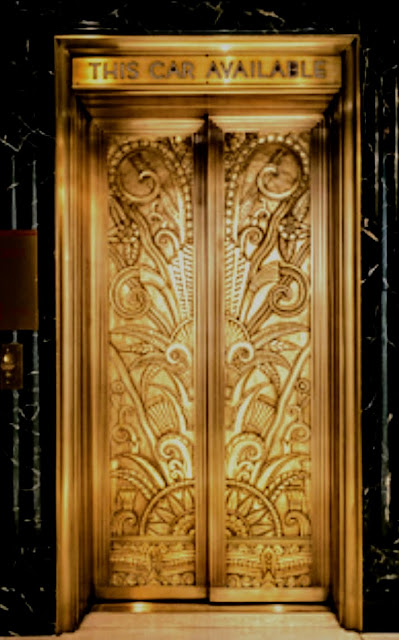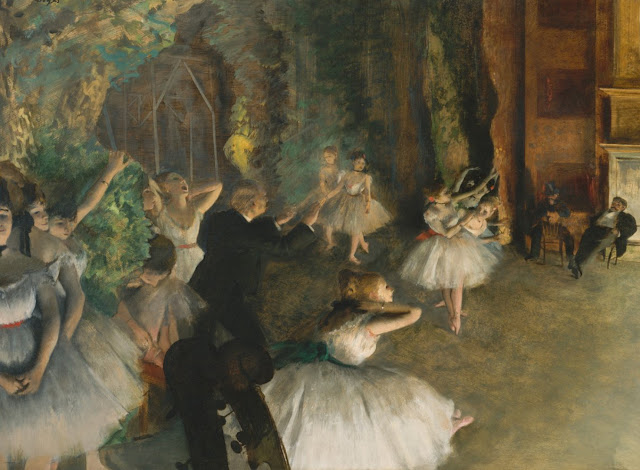
In 1922 Emily Post wrote of the tea foods that were popularly trending: “Selection of afternoon tea food is entirely a matter of whim, and new food-fads sweep through communities. For a few months at a time, everyone, whether in a private house or a country club, will eat nothing but English muffins and jam, then suddenly they like only toasted cheese crackers, or Sally Lunn, or chocolate cake with whipped cream on top. The present fad of a certain group in New York is bacon and toast sandwiches and fresh hot gingerbread. Let it be hoped for the sake of the small household that it will die out rather than become epidemic, since the gingerbread must be baked every afternoon, and the toast and bacon are two other items that come from a range.” – Above, tea with toast. |
The American “High Tea” of the 1920’s
“‘Tis not the food, but the content That makes the table’s merriment.”
HIGH tea is a more formal affair, partaking of the nature of a reception. The hour is usually from five to seven, and the refreshments are in the nature of a substantial supper. Both men and women are invited to high tea, and invitations may be formal or not, depending on the people you are to ask whether they are friends and old acquaintances, or less intimate.
Where written invitations are sent it is quite customary and proper to word them informally. If, however, you are going to make your invitations and your affair quite informal, then it is better to ask your friends to come to supper. A supper and a high tea may, in reality, amount to pretty nearly the same thing, depending upon the kind of invitations sent and the number invited.
High tea may serve as the beginning of an early evening party, or as the close of an afternoon card party. It is an elastic affair to be used in many pleasant ways.
The Invitation
Pen written invitations are quite permissible for all except the most formal affairs, and the engraved card with blanks left to be filled in for the occasion is used by many who follow the best customs. This saves a considerable expense, since one plate will do for all occasions.
If written invitations to a high tea are to be used, they should be sent at least a week or ten days before the affair. Where men and women are both to be invited, as is proper upon such an occasion, the host's name as well as that of the hostess should appear. A rather heavy card of fine quality should be used, and the invitation reads:
Mr. and Mrs. Willis Ames
at home
Thursday afternoon, March seventh from five until seven o’clock
Seventy-six, Holbrook Avenue
If the tea, or reception, which is what it really amounts to when a large number is invited, is given in honor of some person, or to introduce a man and his wife who have come into the neighborhood, or to do honor in any such way, then the invitations should be so worded as to make this known. In the lower left-hand corner of the invitations are written the words, "To meet Mr. and Mrs. Atkinson."
Menu for HIgh Tea
The menu for a high tea or afternoon reception and the serving, will depend largely upon the number invited. If only sixteen or even twenty are asked, it is better to use small tables if there is room. It is not necessary to use tables large enough to seat four, although it is pleasant to do so where possible. Little "end-tables"- the small odd-shaped tables used at the end of a sofa or at the side of a chair, small stands, tabourettes - anything that will hold a plate or two may be used, and the informality of these add to the pleasure of the party. If, however, you want to keep the note of the entertainment a still more formal one, then card or folding tables should be placed where they will be used.
These are spread with the prettiest cloths possible, and places laid for four at each table. Silver according to the need, but usually consisting of a fork, a butter spreader, a bouillon spoon and silver for the dessert, a glass for water, and a napkin are placed on the table. The menu is then served as it would be at any meal.
Buffet Serving
A formal tea, or reception, may also be served from the diningroom, to the guests standing. Rather large plates are used, and on each when handed are salad, cold meat, a cup of coffee or tea, and a buttered roll. Forks and spoons are passed from a basket or tray.
These plates are then taken, and a dessert plate with ice-cream substituted. Cakes are passed. A large bowl of punch with many glasses stands on a serving table.
Where the menu is served in this way the refreshments are placed on a large table in the center of the dining-room, and the guests invited to surround the table, or, after being served, may take their plates to another room, the porch, or wherever they please. They can help themselves and each other from the table to second servings and to the punch or other beverages.
The coffee urn and tea pot are placed at either end of the table and the tea and coffee poured by friends of the hostess.
The Background
If a hostess wants to add a special touch of brilliancy to her tea she may arrange for music, but it should be secondary and unobtrusive, an orchestra playing softly at a distance, or some good records on the phonograph. Never singing, however, or solo work. The performer would only be put out of humor by the lack of attention.
People like to move about at tea parties and receptions, to talk and laugh. They are not invited to this kind of an entertainment to see someone else perform, but to perform themselves. Each can play his own part, dramatize himself. He has come looking his best and in a humor to be agreeable, and he doesn't care to be asked to stand still and watch another play the part of star.
At a small afternoon tea party it is quite permissible to ask some one to sing or play. The stage is set for a quieter performance, and one is willing to sit still and be amused. The stimulus and confusion of a small tea is not so great as that of a larger one.
Provide Background
In order to give your guests the greatest pleasure at high tea, make your rooms beautiful that you may give an artistic background for their pretty clothes and well groomed figures, provide attractive and inviting food, and let them alone, except for seeing that there are no strangers left lonely, no shy ones standing at one side. Keep a vigilant eye to see that faces are happily relaxed, not strained; that people are moving, talking, laughing; that your rooms are neither too hot nor too cold, and that everybody seems to be having a happy time, and your affair will be a success.—By Della Thompson Lutes, 1923
🍽️Etiquette Enthusiast, Maura J. Graber, is the Site Editor for the Etiquipedia© Etiquette Encyclopedia























